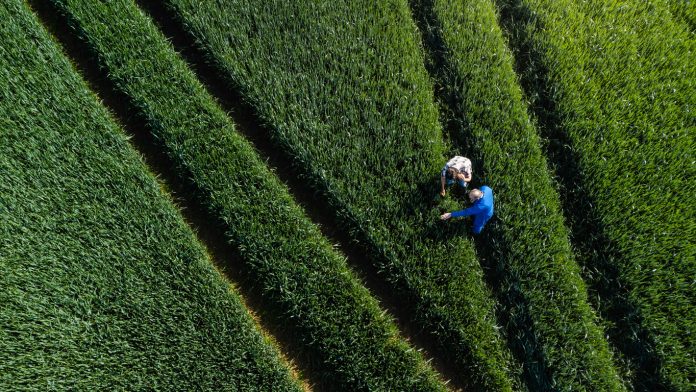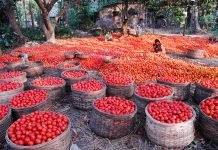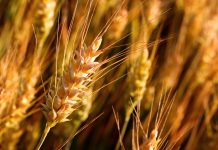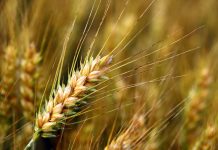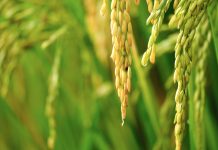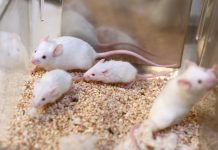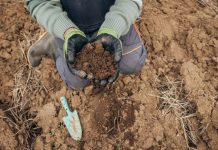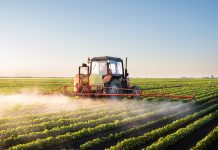Aarthi Janakiraman, Global Research Director, TechVision, Frost & Sullivan, turns the spotlight on sustainable agriculture, which she argues is a vital cog in building a sustainable global economy
As the global population grows steadily, governments continuously focus on ensuring food security for all. To ensure food for the growing world population, availability must increase by at least 65% to 75% in the next twenty-five years. This places an immense burden on our agricultural ecosystem.
Although there is a need to increase food productivity, it is also true that arable land needs to be rising in line with the demand. In fact, growing industrialisation has resulted in the shrinking of available land, especially in emerging economies.
This results in the increasing use of crop aids and growth promoters, mainly derived from synthetic sources. This upsets the food-water-soil nexus and negatively affects climate and sustainability. Therefore, the focus of stakeholders in the agrifood ecosystem is gradually shifting from ensuring food security for all to ensuring food security for all through sustainable means.
Widening the scope of sustainable agriculture
Sustainable agriculture has evolved from a traditional approach of crop production to encompass livestock and others, such as aquaculture and forestry, to name a few, as an integrated systematic approach that encourages biodiversity and helps replenish the soil ecosystem while preventing further degradation.
It also advocates the increasing use of natural aids and resources while encouraging the judicious use of synthetically derived ones that don’t cause harm to the environment to restore soil health. This underlines that sustainable agriculture can no longer considered independent and intertwines with the changes in food systems and climate change activities.
COP28 and FAO on sustainable agriculture
The recent COP28 further emphasised this when more than 150 countries signed the UAE Declaration on Sustainable Agriculture, Resilient Food Systems, and Climate Action. The declaration focuses on nations’ commitment to promoting and ensuring food security, establishing resilience and creating a sustainable agrifood system that aligns with the SDGs.
This includes advocating for integrated water and resource management in all agriculture activities to promote circularity at all stages and emphasises the need for more support to small-time farmers, retailers and others to build an inclusive agrifood ecosystem without compromising on productivity while transitioning from practices and processes that are GHG intensive to more sustainable ones across the agrifood value chain, including integrating agriculture and food systems into nations’ climate plans and long term climate action strategies. (1)
The COP28 and ongoing global focus on sustainability and climate change action has also expanded the roles of stakeholders such as regulatory bodies, standardisation agencies and international organisations such as the Food and Agriculture Organization of the United Nations (FAO) to a more active one that works more closely with market participants, including companies, cooperatives, researchers, growers, and others across the globe to educate, advocate and help implement sustainable practices in agrifood systems to promote food security and resilience.
FAO, for example, has been active in rendering support and aid in all activities towards its goal of promoting a sustainable agrifood system that aligns with climate action plans. It works with all government stakeholders to help devise policies and strategies for small-time farmers to offer technical aid and support for implementing best practices and technology advances and fostering cross-sector collaboration to develop an integrated ecosystem. (2)
It also actively promotes research efforts and aids in conducting pilot and field trials to identify practices and processes that can help transition to a sustainable, resilient, and climate-resistant agricultural economy that can help achieve net zero goals.
A resilient agrifood ecosystem: Action points for stakeholders
Achieving a sustainable and climate-resilient agrifood ecosystem is a complex task and requires the active participation of stakeholders not restricted to the agrifood industry alone. It requires collaborative efforts of nodal agencies, global organisations, research institutions and industrial stakeholders across regions and applications to develop an action plan to transition into a resilient agrifood ecosystem that can reduce environmental degradation and replenish soil ecosystems while promoting biodiversity.
Apart from revising policies and fine-tuning processes to encourage active participation of stakeholders from all parts of the value chain, encouraging research and innovation aimed at improving yield and productivity while minimising losses and customising best practices that were successful in various geographies and even industries to name a few can go a long way in achieving a sustainable agrifood ecosystem.
An integrated approach well supported by governmental and international agencies in terms of information dissemination and training related to technology advances not limited to crop aids but extending to tracking, monitoring and interventional approaches, financial aids including tax credits, especially for small-scale farmers to test, trial and scale-up sustainable practices, fostering research and innovation, predominantly indigenous to the region. This encourages collaborative approaches to enable a farm-to-fork strategy to minimise wastage and losses while creating a well-connected value chain, which can go a long way in establishing a sustainable agriculture system.
These, combined with multilateral trade policies and cooperative agreements to promote partnerships and collaborations, can go a long way in building a resilient, climate-conscious, sustainable agrifood ecosystem.
References
Further reading
- https://www.fao.org/state-of-food-security-nutrition/2021/en/
- https://www.fao.org/3/i3940e/i3940e.pdf
Contributor Details
Editor's Recommended Articles
-
Must Read >> Agriculture and crops: A focus on wheat cultivation
-
Must Read >> Can nanotechnology aid the battle against COVID-19?


